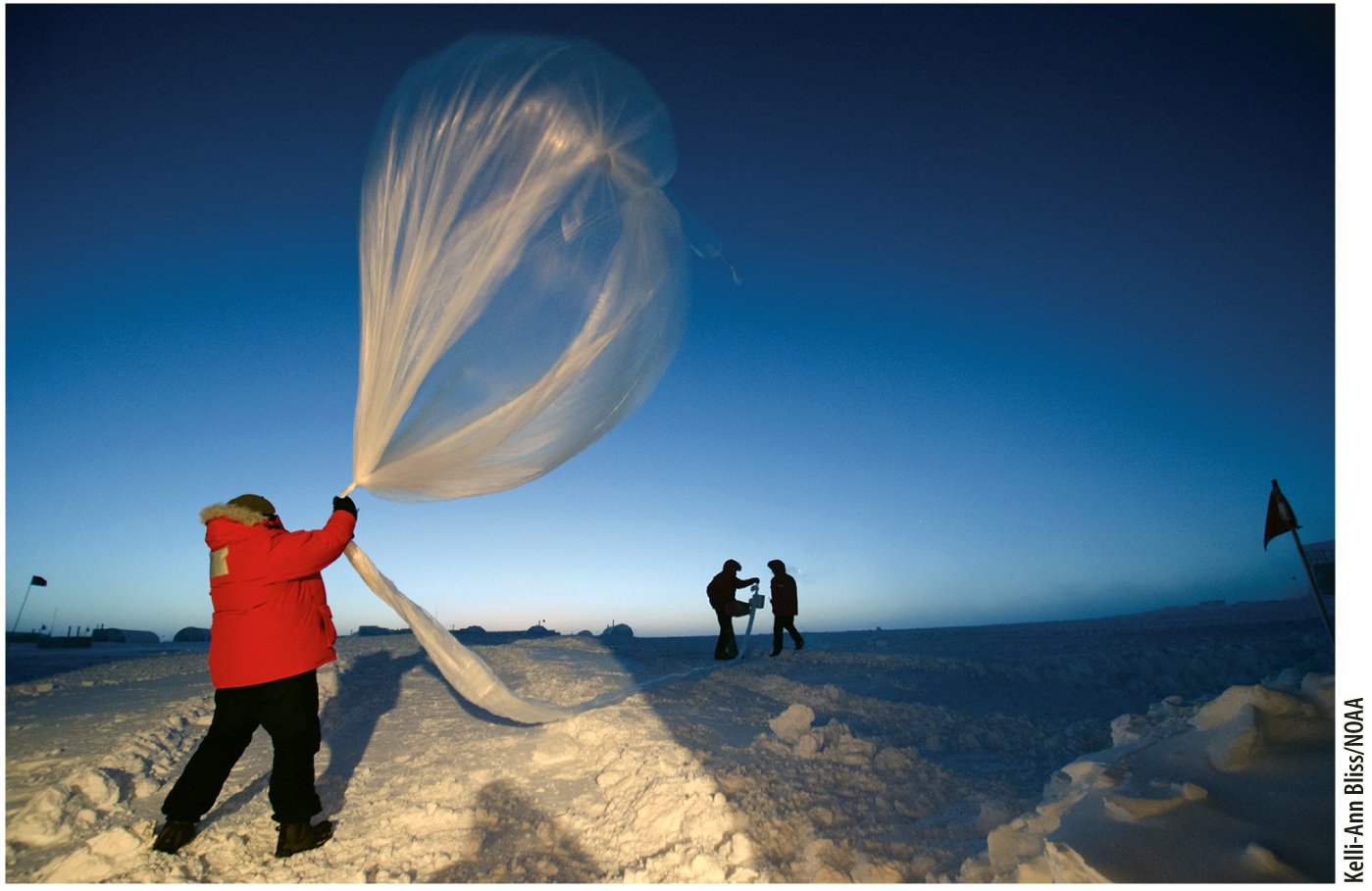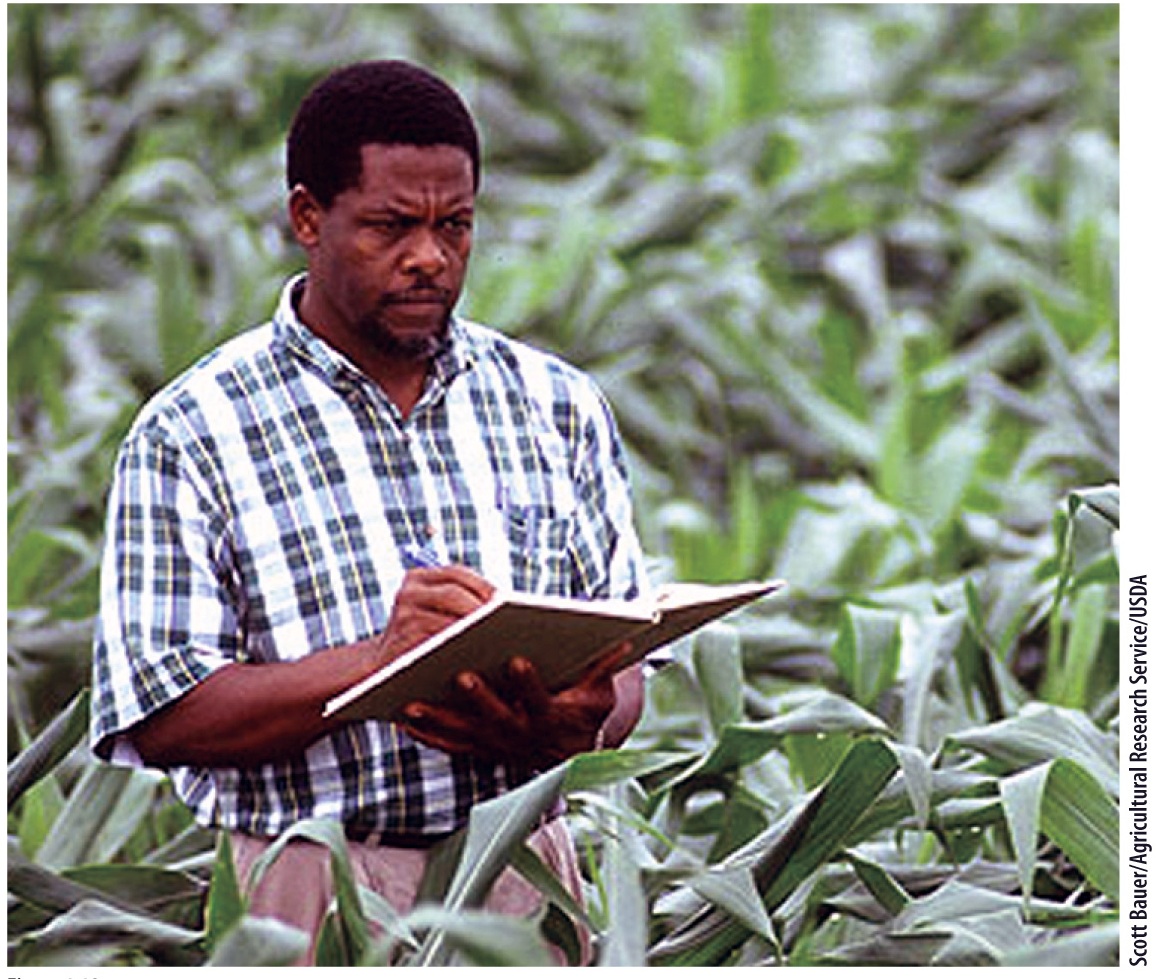Chapter 1. Critical Analysis Activity
Introduction
true
true
You must read each slide, and complete any questions on the slide, in sequence.
Critical Analysis Question:
Exploring nature and solving complex problems are often important motivations for scientists choosing a career path. For those successful in obtaining a position in scientific research, what responsibilities come with the privilege of working in this highly competitive field?
To formulate your answer, first consider these additional thought questions:
Question 1

Question 1.1
| 1. Consider the daily research functions of a scientist. In this scenario, a scientist is attempting to collect air quality samples to be analyzed for various greenhouse gases. The scientist is excited to begin data collection and begins running the air samples through the sampling equipment, forgetting to calibrate the equipment first. Only after the fact, once all the samples were run, does the scientist remember that the equipment should have been calibrated first. If the scientist proceeds with the inclusion of these data in his research report, which of the following will occur? Select all that apply. | |
| nbIRnRe8R9/OaJB+ | sloppy data collection |
| xdqz80TY1Vwhogjf | fabrication |
| nbIRnRe8R9/OaJB+ | deception |
| nbIRnRe8R9/OaJB+ | falsification |
| xdqz80TY1Vwhogjf | plagiarism |
::sloppy data collection: Not calibrating the equipment leads to incorrect data.::fabrication: This scientist is not fabricating data, as that would require the creation of research results that did not exist. In this situation, the scientist did collect data, but it was inaccurate data.::decpetion: A scientist that knowingly includes bad data deceives those who read their report and/or make decisions based on the results.::falsification: The results are false and would need to be rejected by an ethical scientist.::plagiarism: This scientist is not plagiarizing, as that act would require the scientist to claim ownership of information, data, or results that were produced by someone else.
1. Consider the daily research functions of a scientist. In this scenario, a scientist is attempting to collect air quality samples to be analyzed for various greenhouse gases. The scientist is excited to begin data collection and begins running the air samples through the sampling equipment, forgetting to calibrate the equipment first. Only after the fact, once all the samples were run, does the scientist remember that the equipment should have been calibrated first. If the scientist proceeds with the inclusion of these data in his research report, which of the following will occur? Select all that apply.
Question 2

Question 1.2
| 2. Consider a scientist who is studying the rate of carbon dioxide uptake by plants during photosynthesis. The study is funded by a large petroleum company that is eager to get a tax break by demonstrating how they are offsetting their carbon output by growing plants that take in carbon and store it in their tissues. The scientist discovers that these plants only take in a small percentage of the company’s carbon output, well below the standard to earn the tax break; however, the scientist wants to continue to receive the funding and reports higher values of carbon dioxide removal by the plants. In this scenario, which of the following occur? Select all that apply. | |
| nbIRnRe8R9/OaJB+ | deception |
| nbIRnRe8R9/OaJB+ | fabrication |
| xdqz80TY1Vwhogjf | plagiarism |
| nbIRnRe8R9/OaJB+ | falsification |
| xdqz80TY1Vwhogjf | sloppy data collection |
| nbIRnRe8R9/OaJB+ | conflict of interest |
::deception: A scientist that knowingly reports false data deceives those who read their report and/or make decisions based on the results.::fabrication: This scientist is fabricating data by creating research results that did not exist.::plagiarism: This scientist is not plagiarizing, as that act would require the scientist to claim ownership of information, data, or results that were produced by someone else.::falsification: The results of the study may have been accurate initially, but the scientist chose to falsify them in order to appease the study funder.::sloppy data collection: In this scenario, it is not an issue of sloppy data collection but an issue of falsifying the results of the study.::conflict of interest: An ethical scientist will present the results just as they are and avoid conflicts of interest and/or presenting results just to please a funder.
2. Consider a scientist who is studying the rate of carbon dioxide uptake by plants during photosynthesis. The study is funded by a large petroleum company that is eager to get a tax break by demonstrating how they are offsetting their carbon output by growing plants that take in carbon and store it in their tissues. The scientist discovers that these plants only take in a small percentage of the company’s carbon output, well below the standard to earn the tax break; however, the scientist wants to continue to receive the funding and reports higher values of carbon dioxide removal by the plants. In this scenario, which of the following occur? Select all that apply.
Critical Analysis Question
Question 1.3
pvlEY/2YVi02AgxMOrLZslSj+0PBHJW9VMleYGBVOa8+0OCMWloGNuCZ7tHTpZo63WCc+oEbtp9bmOYe8kuBhl/6iVHvZ/+zHTVXFfa1m7Y69CWK9pdLa+I6g+wp7iP/V0y/Ol/RX4QS03ZwZN4SHgVCje1NlR6OLZB3chKhB+pQgG/mrftJ53EiqRFA6QJPN0UiyL1fP5c9ogR1vkZnuXzvepTyITiOMR1VCRJcmSLQiHr7RSNytm1F3fTTeP9vKZG22W/gpPSn4Al20QhAHq2N3f96xuKw8wbzynPnidLgsGWWAHhA3pxTogKmaQ4OfPF9FiBOEX7knth02iS8zap2N+RmCFaC1sqpFhKWPg7D7+EXY+1OVbSsfQ40eMti9TSpUFXb9V++9ALU6HGnJaaa84x6oeNPaQzFFQ5A7ETMHJPH07pnhc+0+lkiI/5uvsbacw==1.1 Activity Completed!
Activity results are being submitted...